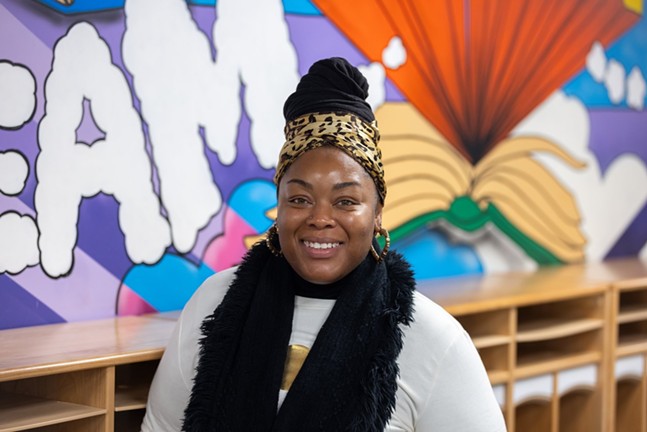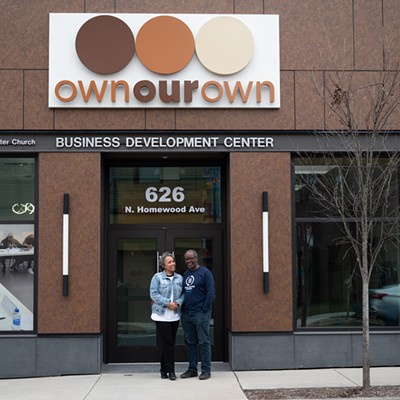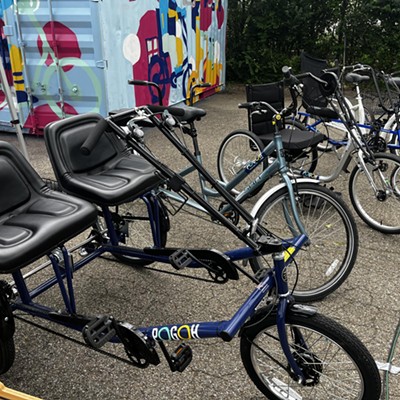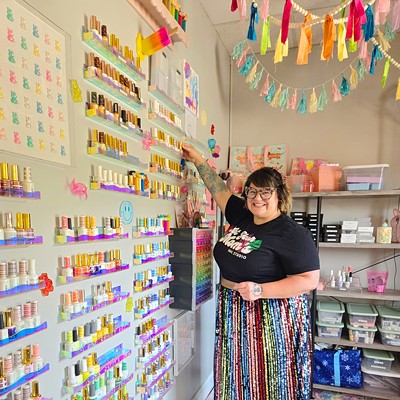
Despite Homewood being a local food desert, the Oasis Farm & Fishery is working to improve the healthy eating habits of elementary school children in Homewood through their Better Food, Better Me (BFBM) food education program. The Oasis Farm & Fishery is an urban farm part of Bible Center Churches’ Oasis Project.
In 2016, Better Food, Better Me evolved from the need to teach children as part of The Maker’s Clubhouse into an after-school program about urban agriculture. These children, primarily African American, attend Lincoln and Faison Elementary Schools.
“We were doing programs with our after-school children bringing them over, and then just realizing they didn't know a lot about urban agriculture,” Pastor Cynthia Wallace, Executive Director of The Oasis Project tells Pittsburgh City Paper.
The program encourages healthy eating habits through farm based education and hands-on learning in the farm and kitchen. It also emphasizes the impact that healthy food has on their wellbeing overall.
Oasis Farm educator Tynisha Chambers developed a curriculum that aids the children in understanding nutrition labels, the benefits in purchasing produce from farmers markets, and how diet affects their body.
A day in the program typically involves a discussion about a recipe and its cultural origins. Chambers believes introducing students to different cultural foods expands their perspective on new recipes. “[It teaches] them different cultural practices and things that different cultures do opens the world for them,” she tells City Paper.
One common challenge is some of the children's initial reluctance to taste new recipes. However, once they’re engaged, they find joy in the experience. “Kids are often pleasantly surprised,” says Wallace.
They explore the fruits and vegetables in the recipe and often prepare them without electricity. “We teach cooking skills a lot of times without having to use electricity, like the stove or the microwave,” says Chambers.
The goal is to empower these children to know they have a choice and can control what they put into their bodies. They teach students that food is their fuel. For example, athletes require specific nutrients to allow their bodies to perform well. “If you want to have maximum performance in terms of your body, you need to give it good things to eat,” says Wallace.
The program also includes a traffic light activity indicating fat and sugar levels in foods using “Go, Slow, and Whoa.” “Go” foods have the highest nutritional value.
“You can get energized from these foods. These are foods that you want to have all the time that boosts your metabolism,” said Chambers. “Whoa” foods don’t have the highest nutritional value and are processed, while “slow” foods have some nutrients but should be eaten in moderation.
Children also have the opportunity to plant and grow produce on the farm, learning about the life cycle of plants. The 2024 summer program has been more involved outdoors in the urban farm rather than only being in the kitchen.
“I made it to where they are actually gardening and planting their own food, so that they can utilize it for this school year,” said Chambers. They have seeded cilantro, chives, tomatoes, and beans. In the fall, the children are taught to harvest and learn about the future benefits of their crops.
“We're teaching children to make better choices when they're able to make those choices,” says Wallace. While many children still crave snacks, the program helps them understand nutritional value to be aware of what they’re consuming. “It's just being aware of what foods are good for you and what foods you should eat in moderation,” said Wallace.
The goal is to increase awareness of the benefits of nutritious food on health and wellness. Children are encouraged to share what they learn with their families to promote healthy eating habits and appreciate the impact of urban farming on their community.
The program includes surveys at the beginning and end to measure changes in participants' attitudes towards healthy foods and their understanding of where food comes from. Examples of this include teaching them to create container gardens and raised beds.
Although Homewood doesn’t have a grocery store, Better Food, Better Me is exposing the children to alternative ways to access nutritious foods. “I feel like it could impact them wanting to start their own gardens or even fight for a grocery store or a year-round farmers market in the community,” said Chambers.
Wallace also hopes that children will learn advocacy skills to address the food desert and promote healthy eating in their community.


















